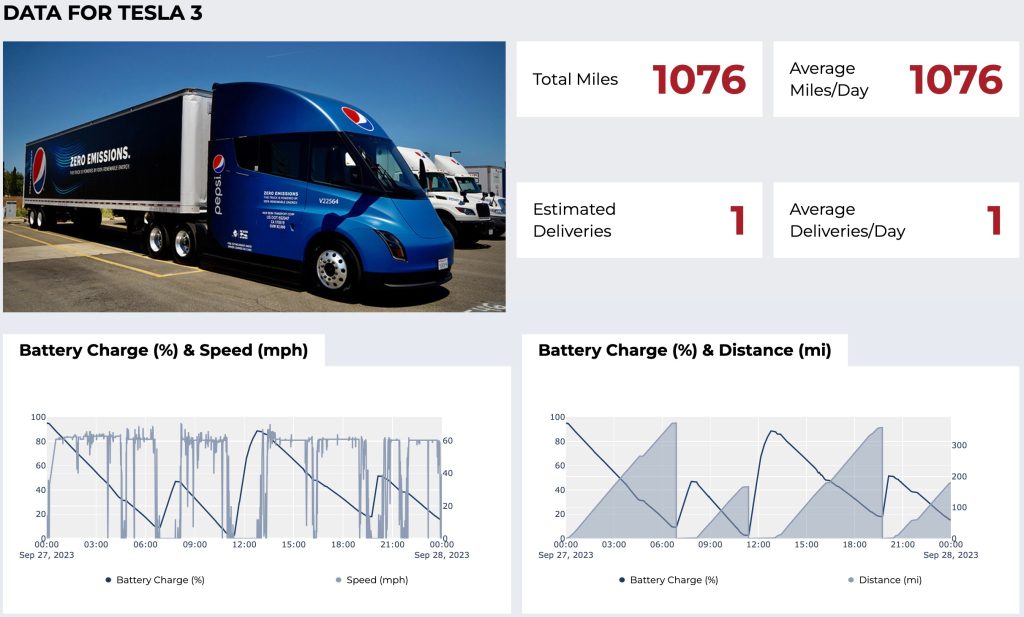
A Tesla Semi electric truck traveled over 1,000 miles in a single day in a real-world test for a new independent study.
There have been a lot of doubts about class 8 battery-electric semi-trucks. Many didn’t think that they would ever be able to compete with diesel trucks.
Bill Gates was among those doubters. Gates argued that all-electric semi-trucks like the Tesla Semi would “probably never” work because batteries would be too heavy.
He didn’t see them achieving a range of 500 miles, which is needed for long-haul trucking.
Tesla proved him wrong last year with a 500-mile trip with a load on one charge.
The North American Council for Freight Efficiency (NACFE) has been conducting a study as part of its new Run on Less program to test several electric trucks in real-world conditions and release the data in real time.
There are three new Tesla Semi trucks in the program this year, and we reported on the first data coming earlier this month.
Now, the 18-day study has concluded, and on the second to last day, the Tesla Semi #3 managed to travel a record 1,076 miles in a single day:

While NACFE didn’t specify the payload for this particular day, it did say that those trucks averaged over 70,000 lbs of loads.
Michael Lohscheller, Nikola Motor’s new CEO, said just last month after one of its hydrogen fuel cell trucks traveled 900 miles in a day:
I defy anyone to find another zero-emission vehicle truck anywhere that can run up to 900 miles in a day.
Well, I found one. The Tesla Semi.
The data-gathering part of the study has just concluded, and we expect NACFE to release more conclusions from the data soon.
Author: Fred Lambert
Source: Electrek




Top comment by Kevin Martyn
Liked by 12 people
So over 1000 miles per day with 3 stops to re-load, while charging, looks like the semi could run continuously with heavy loads of cola & Gatorade. I expect the semi will get a battery upgrade in the next year or 2, that will do even better. Hydrogen trucks are toast for most applications, with 10x the fuel cost, and the low efficiency of fuel cells.
View all comments